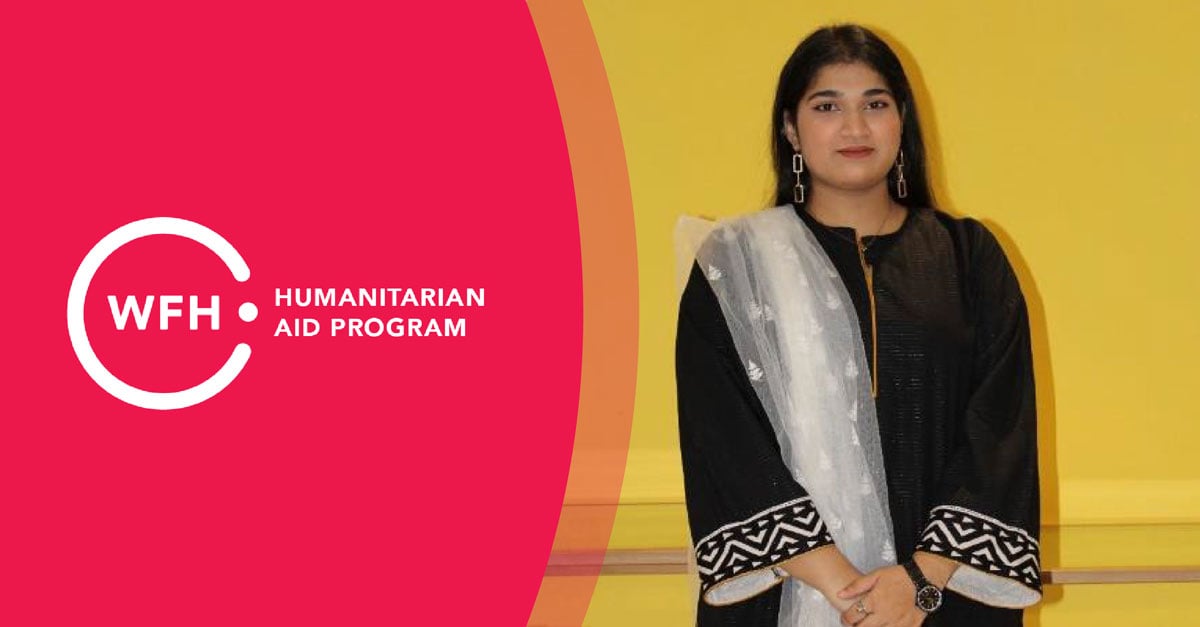Javid comes from a family of four children. When she was six, she was diagnosed with VWD when she had a severe nosebleed. As she grew older, the nosebleeds continued. When she entered puberty, she began having severe menstrual periods. Throughout this time, she received donated factor from the WFH Humanitarian Aid Program. The donations helped—but many of her symptoms persisted.
In April, Javid was put on prophylactic treatment. Prophylaxis can have a transformative effect on children, allowing them to enjoy a bleed-free life and go to school like other kids. Unfortunately, in Javid’s case, although prophylaxis helped, she still suffered from continued severe menstrual periods. After a consultation with her specialists, the difficult decision to proceed with a hysterectomy was made to improve her quality of life and eliminate the strong possibility of longer-term health issues. The operation was performed in August with donated factor and was successful.
Wajiha Javid’s story shows that progress is being made when it comes to the identification of women and girls with bleeding disorders (WGBDs). At one time, doctors would have believed she had another condition other than VWD because only males were thought to be able to have bleeding disorders. The result of this misdiagnosis could have potentially been fatal. Now, even though a hysterectomy was not the outcome she and her family might have hoped for, she has a chance at a normal life with continued prophylactic treatment.
Since 2015, almost 50 million IUs of factor were donated to Pakistan. Nearly 9.5 million IUs of factor—and over 100,000 mg of non-factor replacement therapy—were donated to the country through the WFH Humanitarian Aid Program in 2021. To find out more about the WFH Humanitarian Aid Program, please click here.
About the WFH Humanitarian Aid Program
The WFH Humanitarian Aid Program improves the lack of access to care and treatment by providing much-needed support for people with inherited bleeding disorders in developing countries. By providing patients with a more predictable and sustainable flow of humanitarian aid donations, the WFH Humanitarian Aid Program makes it possible for patients to receive consistent and reliable access to treatment and care. None of this would be possible without the generous support of Sanofi and Sobi, our Founding Visionary Contributors; Bayer, CSL Behring and Roche, our Visionary Contributors; Grifols, our Leadership Contributor; and Takeda and Japan Blood Products Organization, our Contributors. To learn more about the WFH Humanitarian Aid Program, visit www.treatmentforall.org.













